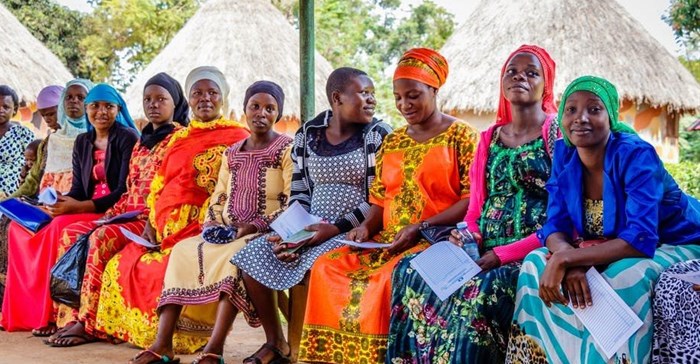
Pregnant women waiting to see a doctor at a hospital in Uganda. Shutterstock
A major reason for this is that women in developing countries have no real access to proper medical care and therefore miss out on the help required for difficult births. About 15% of all women experience severe complications when giving birth. Most of these cases require major intervention, including surgery. In developed countries, emergency surgery ensures that women and their babies survive childbirth, and mothers are spared the severe physical and emotional trauma that often follows a complicated birth.
One potentially devastating complication in childbirth is obstetric fistula. This usually happens during a protracted or obstructed labour that isn’t given sufficient attention. A hole develops in the birth canal between the vagina and rectum or between the vagina and bladder. An estimated 50 000 to 100 000 women in sub-Saharan Africa develop fistula every year.
If women don’t have access to quality emergency obstetric care, the fistula can cause long term damage. This can include incontinence. In turn this can lead to women being stigmatised and isolated from their families and communities among other socio-economic losses.
While conducting research in East Africa, I personally witnessed the profound lack of safe anaesthesia. This meant that there was a delay in access to safe and immediate caesarean sections. The lack of access was due to a number of issues. These include few anaesthetists, lack of equipment and emergency drugs, shortage of blood supply and failed referral systems.
In my more recent research I conducted a cost evaluation to see if it made sense to provide women with fistula repair surgery. We looked at it both from the point of view of the long-term cost to women as well as the financial cost.
Our study found that fistula surgery is cost-effective and can significantly reduce disability in women of childbearing age in Uganda.
Our findings were consistent with a previous modelled analysis on the issue in low- and middle-income countries. Increasing access to high quality obstetric and fistula surgery could improve the health of many women in resource-limited settings.
What we found
Our study is the first publication on the cost-effectiveness of obstetric fistula repair in the East African region.
We built a model to estimate the cost-effectiveness of vesico-vaginal and recto-vaginal fistula surgery versus no surgery to Uganda’s national health system.
We assessed long-term disability outcomes based on a lifetime Markov model. This involved mapping a sequence of possible events in which the probability of each event depended only on the state attained in the previous event. Surgical costs were estimated by micro-costing local Ugandan health resources. Disability weights associated with vesico-vaginal, recto-vaginal fistula, and mortality rates in the general population in Uganda were based on published sources.
We estimated that the cost of providing fistula repair surgery in Uganda was $378 per procedure. For a hypothetical 20-year-old woman, surgery was estimated to decrease the number of years lost to disability from 8.53 to 1.51.
What is needed
Our model found obstetric fistula surgical repair to be the optimal strategy for management of this condition, and one that is highly cost-effective in Uganda. Our study provides data for policy makers to prioritise implementation of this procedure in developing countries.
But this will require significant social and economic attention. The lack of action to date has been because of insufficient political commitment, the low numbers of skilled healthcare providers and the inability to retain skilled birth attendants in priority areas.
Three vital ways to prevent obstetric fistula are to provide access to skilled care during delivery, to closely monitor progress during labour, and to provide emergency caesarean sections. But low and middle-income countries lack sufficient surgeons and resources to treat patients with obstetric fistula.
While the current estimates of the unmet need for fistula surgical repair in low-income countries are not well documented, 10 years ago it was estimated to be as high as 99%. Therefore, there is an urgent need to strengthen care in low income countries for better maternal and neonatal outcomes.
All this needs to change if countries are going to achieve the goal of making sure that every citizen – whatever their income – has access to universal health care. And priority must be given to investing in medical facilities that are able to provide adequate prenatal care as well as healthy deliveries. Strengthening the option for women to have safe surgery during birth complications would decrease maternal and neonatal morbidity and move closer to the goal of safe motherhood.
This article is republished from The Conversation under a Creative Commons license. Read the original article.
















